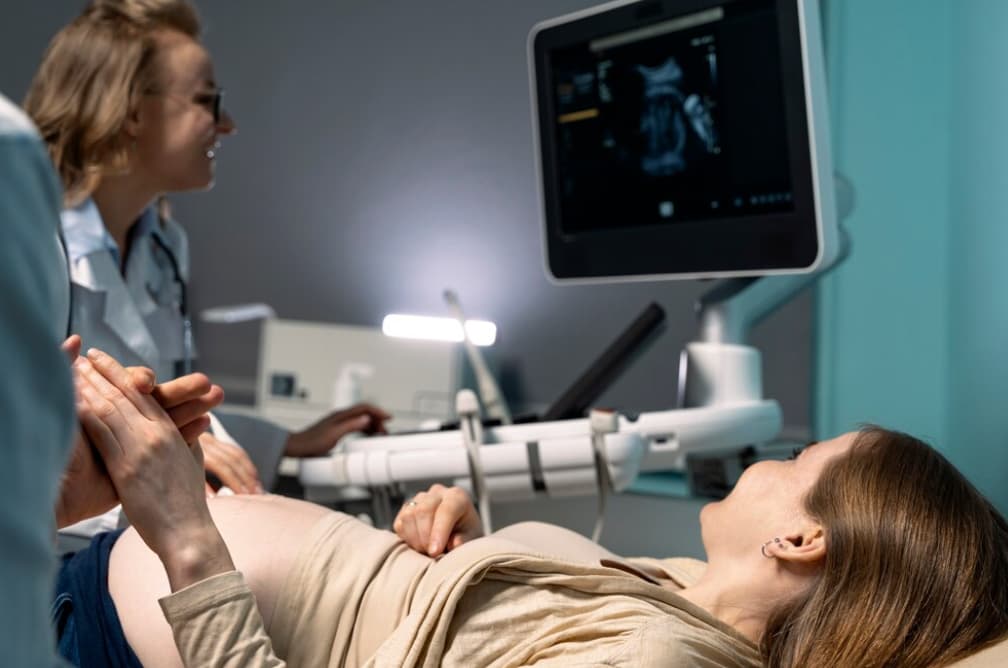If you’re considering pursuing a career as a physician assistant (PA) in Pennsylvania, one of the most important aspects to research is the salary potential. With a growing demand for healthcare professionals and an increasing role for PAs in the medical field, it’s crucial to understand the current compensation trends for this profession in the state. In this article, we will delve into the details of the PA salary in Pennsylvania, including factors that influence it, and provide a comprehensive overview of the opportunities available for PAs in the state.
Understanding the Role of a Physician Assistant
What is a Physician Assistant?
A physician assistant, also known as a PA, is a medical professional who works under the supervision of a licensed physician to provide diagnostic, therapeutic, and preventive healthcare services. PAs can perform physical examinations, order and interpret tests, make diagnoses, and prescribe medications. They are trained in the medical model, which means they approach patient care with a focus on disease prevention and health maintenance.
In Pennsylvania, PAs must have a master’s degree from an accredited PA program and pass the Physician Assistant National Certifying Exam (PANCE). Once certified, they must maintain their credentials by acquiring continuing education credits and recertifying every ten years.
What Are the Duties and Responsibilities of a Physician Assistant?
As a PA, you will work closely with physicians and other members of the healthcare team to provide quality patient care. Your specific duties and responsibilities will vary depending on your specialty, work setting, and supervising physician’s practice style. However, common tasks include:
- Taking medical histories and performing physical examinations;
- Ordering and interpreting diagnostic tests;
- Diagnosing and treating illnesses and injuries;
- Prescribing medications and therapies;
- Assisting in surgeries and procedures;
- Counseling patients on preventive care and healthy lifestyle choices;
- Analyzing radiographs and laboratory test results;
- Documenting patient progress and treatment plans;
- Collaborating with other healthcare professionals to create comprehensive treatment plans.
Factors That Influence Physician Assistant Salary in Pennsylvania
Location
One of the primary factors that influence PA salary is the geographical location. In Pennsylvania, PAs can expect to earn different salaries depending on the city or region they work in. According to data from the Bureau of Labor Statistics (BLS), PAs working in urban areas tend to make more than those in rural areas. This is due to the higher cost of living, demand for healthcare services, and availability of job opportunities.
In general, PAs in larger cities such as Philadelphia, Pittsburgh, and Harrisburg tend to earn higher salaries compared to those in smaller towns. However, this does not mean that PAs in rural areas cannot earn a competitive salary. In fact, rural areas often have a higher demand for PAs, which can lead to higher salaries due to the limited supply of qualified candidates.
Experience
Experience also plays a significant role in determining a PA’s salary. As with most professions, the more experience you have, the higher your earning potential. PAs who have been practicing for several years tend to earn a higher salary than those just starting in their careers.
According to data from the American Academy of Physician Assistants (AAPA), the average PA salary in Pennsylvania increases by about $5,000 per year for every five years of experience. This means that PAs with five years of experience can expect to earn around $110,000 annually, while those with 20 years of experience can earn upwards of $130,000.
Specialty
Specialty is another factor that can significantly impact a PA’s salary. In Pennsylvania, the highest-paying specialties for PAs include surgical subspecialties, such as cardiovascular and orthopedic surgery, and specialized areas like emergency medicine and dermatology.
According to the 2020 AAPA Salary Report, PAs working in cardiovascular and thoracic surgery earn the highest average salary of $142,747, followed by those in emergency medicine with an average of $129,357. In contrast, PAs working in family medicine or primary care tend to have lower salaries compared to their counterparts in specialty areas.
Physician Assistant Salary Trends in Pennsylvania
Average PA Salary in Pennsylvania
The BLS reported that as of May 2020, the mean annual wage for PAs in Pennsylvania was $105,150, slightly higher than the national average of $112,260. This places Pennsylvania as one of the top five states with the highest employment levels and concentration of jobs in this occupation.
In addition to the mean annual wage, the BLS also provides data on the median hourly and yearly salary. In Pennsylvania, the median hourly wage for PAs is $51.85, while the median annual wage is $107,830. These numbers can give a better understanding of the entry-level salary for PAs in the state.
Projected Growth for PA Salary in Pennsylvania
In general, the demand for healthcare services and professionals, including PAs, is expected to increase in the coming years due to the aging population and advancements in medical technology. According to the BLS, the projected growth rate for PA employment in Pennsylvania is 27.7% from 2018 to 2028, which is much faster than the average for all occupations.
This projected growth will also impact the salary potential for PAs in the state. As demand increases, so does the need for qualified PAs, leading to potential salary increases. Additionally, as the PA profession continues to evolve and expand, there may be opportunities for PAs to take on leadership roles or specialize in niche areas, which can also impact their salary.
Comparison to Other Healthcare Professions in Pennsylvania
When considering a career as a PA, it’s essential to understand how their salary compares to other healthcare professions in Pennsylvania. According to the BLS, the average annual wage for other healthcare occupations in the state includes:
- Physicians and surgeons: $217,650;
- Nurse practitioners: $108,020;
- Registered nurses: $73,300;
- Physical therapists: $84,980;
- Occupational therapists: $85,820.
Compared to these professions, PAs have a competitive salary, with some specialties even earning more than certain positions in this list. Additionally, PAs have a relatively low student debt burden compared to physicians and nurse practitioners, making this profession a financially sustainable option for those interested in healthcare.

Opportunities for Physician Assistants in Pennsylvania
Work Settings
In Pennsylvania, PAs have a variety of work settings to choose from, which can impact their salary potential and job responsibilities. The most common work settings for PAs in the state include hospitals, physician practices, and outpatient care centers. However, PAs can also find employment in other settings such as community health centers, public health clinics, and long-term care facilities.
According to data from the 2020 AAPA Salary Report, the top three work settings for PAs in Pennsylvania are hospitals (39.2%), physician practices (22.6%), and outpatient care centers (10.7%). These settings also tend to have higher salaries compared to other work settings, such as community health centers and academic institutions.
Geographic Distribution of PAs in Pennsylvania
Pennsylvania has a robust job market for PAs, with opportunities available in both urban and rural areas. The state has a relatively even distribution of PAs across its six regions: Southeast, Southwest, Central, Northeast, Northwest, and the Lehigh Valley.
According to data from the AAPA’s 2019 Census Report, about 20% of PAs in Pennsylvania are located in the Southeast region, which includes Philadelphia and its surrounding suburbs. This is followed by the Southwest region, which has around 18% of PAs, and the Central region with about 17%. PAs can also find job opportunities in the other regions, albeit in smaller numbers.
Career Advancement Opportunities for PAs in Pennsylvania
Besides the traditional work settings, PAs in Pennsylvania can also explore non-clinical career paths that offer competitive salaries and growth opportunities. These include positions in medical education, research, administration, pharmaceuticals, and consulting.
Additionally, some PAs may choose to pursue further education and training to advance their careers. For example, some PAs may specialize in a subspecialty through a postgraduate program or take on additional responsibilities as a clinical coordinator or supervisor.
Negotiating a PA Salary in Pennsylvania
Tips for Negotiating a PA Salary
Like any profession, it’s crucial for PAs to understand how to negotiate their salary to ensure they receive fair compensation for their skills and expertise. Here are some tips for negotiating a PA salary in Pennsylvania:
- Do your research: Before entering into negotiations, research the current PA compensation trends in the state, including average salary ranges for your specialty, experience level, and geographic location;
- Highlight your qualifications: Be prepared to discuss your education, experience, and any additional certifications or skills that make you a valuable asset to the organization;
- Consider your leverage: If you have multiple job offers or unique skills that are in high demand, you may have more leverage to negotiate a higher salary;
- Be open to other forms of compensation: If the organization is unable to meet your desired salary, consider negotiating for other benefits such as signing bonuses, relocation assistance, or additional paid time off.
Knowing Your Worth as a PA
It’s essential to understand your worth and value as a PA when negotiating a salary. This not only includes your education and experience but also your contributions to patient care and the healthcare team. As PAs continue to take on more responsibilities and leadership roles in healthcare, it’s crucial to advocate for fair compensation that reflects their expertise and contributions.
Conclusion
In conclusion, the physician assistant profession offers a rewarding career path for those interested in healthcare. In Pennsylvania, PAs have a variety of opportunities to explore, with competitive salaries and potential for growth. As the demand for healthcare services continues to increase, PAs can expect to see a positive trend in their salary potential. It’s crucial for PAs to continue advocating for fair compensation and staying informed about the trends and opportunities in the state. By utilizing resources and negotiating effectively, PAs can ensure they receive a competitive salary that reflects their skills and contributions to patient care.




